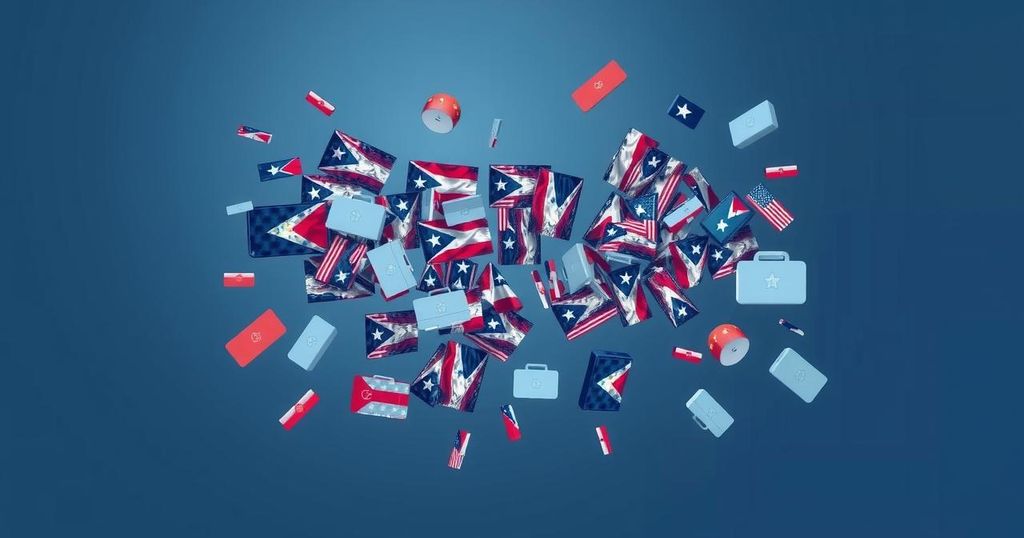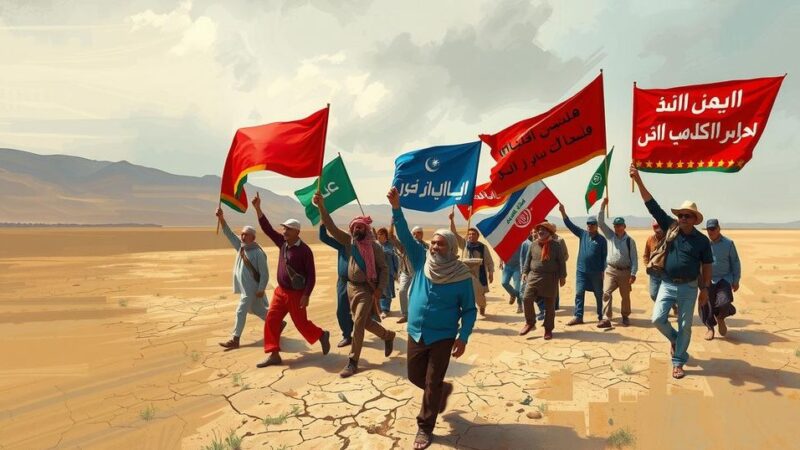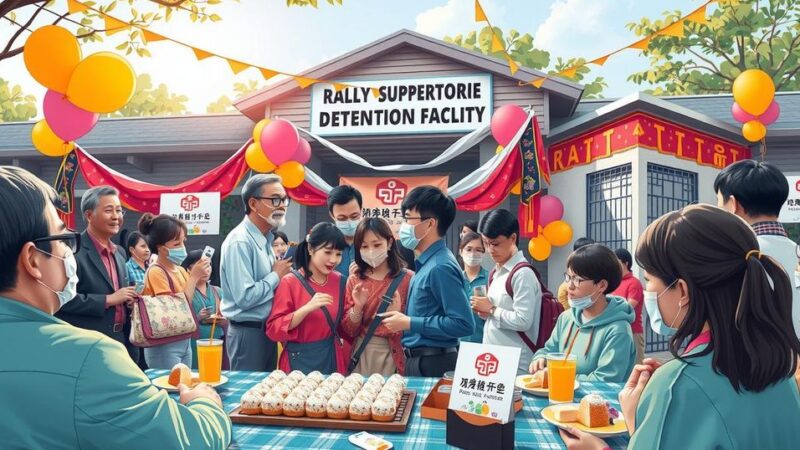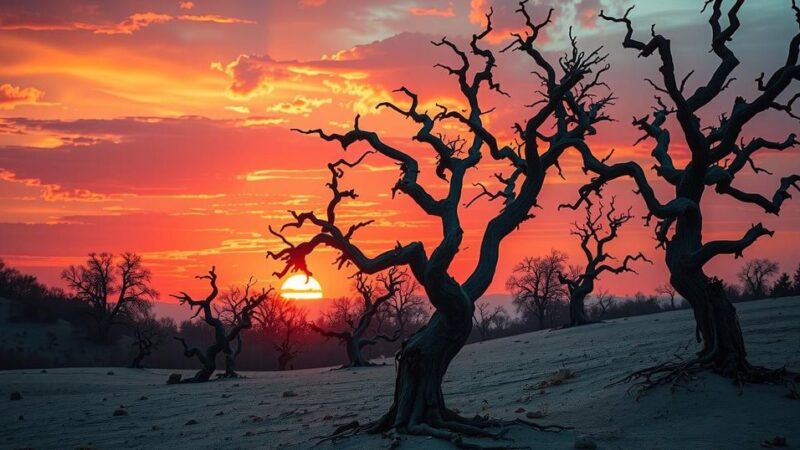Puerto Rico’s current general election offers a historic opportunity, as Jenniffer González of the pro-statehood New Progressive Party aims for a third consecutive term against Juan Dalmau of the Independence Party. The election highlights voter engagement and dissatisfaction with traditional party politics amid economic challenges. Results are anticipated to be delayed, and voters will also address Puerto Rico’s political status in a nonbinding referendum.
Puerto Rico is currently undergoing a historic general election that stands to redefine the island’s political landscape. The electoral process has attracted significant attention due to the potential for either Jenniffer González from the pro-statehood New Progressive Party to secure a third consecutive term, or Juan Dalmau from the Independence Party to achieve a landmark victory not representing the traditional dominant political capabilities. The voter turnout has been remarkably high, with citizens standing in long lines despite adverse weather conditions, demonstrating a strong desire for change among the electorate. The choice is set between a backdrop of economic uncertainty and increasing engagement from younger voters, who seek alternatives to the longstanding bipartisanship of the New Progressive and Popular Democratic Parties. The polls also feature Jesús Manuel Ortiz from the Popular Democratic Party and another candidate representing Project Dignity, indicating a wider political spectrum than in past elections. Their campaigning strategies have resonated with the populace, especially in light of critical issues such as education, housing, and public safety that permeate the discussions surrounding this election cycle. As polling progresses, the voter sentiment is notably optimistic. Many express hope for a transformation in governance and policies that address longstanding challenges. Notably, renowned Puerto Rican artist Bad Bunny has joined the conversation, conveying confidence in the electorate’s capacity to make judicious decisions regarding their future governance. Election results are anticipated to be delayed, reflecting the complexities of a territory with unique voting dynamics. Additionally, voters will also participate in a nonbinding referendum focused on Puerto Rico’s political status, which presents options that could shape future discussions regarding statehood, independence, or enhanced autonomy. This referendum serves not only to gauge public sentiment but also to stimulate important conversations surrounding the territories’ future with the United States. Ultimately, this election could mark a pivotal moment in Puerto Rico’s political history, emphasizing the electorate’s readiness for change and the evolving dynamics of its political parties as they respond to the public’s urgent needs and aspirations.
The general election in Puerto Rico is characterized by a significant potential shift in political dynamics, with historic possibilities at stake. For decades, Puerto Rican politics have largely been dominated by two main parties – the New Progressive Party and the Popular Democratic Party. Recent years, however, have seen the emergence of alternative parties responding to widespread dissatisfaction with longstanding political practices and the crippling economic crisis affecting the island. Voter engagement among younger demographics has increased, reflecting a desire for radical change and a departure from traditional political affiliations. This election also carries the weight of Puerto Rico’s ongoing debates regarding its political status as a U.S. territory, further complicating the electoral landscape.
The current general election in Puerto Rico is momentous, presenting a historical opportunity for either Jenniffer González to extend her party’s reign or Juan Dalmau to become a trailblazer outside the established political order. As voters face key issues influencing their daily lives, their turnout signifies a strong demand for change and a reevaluation of Puerto Rico’s status in relation to the United States. The outcome may reflect not only the political climate but also the aspirations of the Puerto Rican populace moving forward, setting a course for reform and potential shifts in governance and social policy.
Original Source: apnews.com






